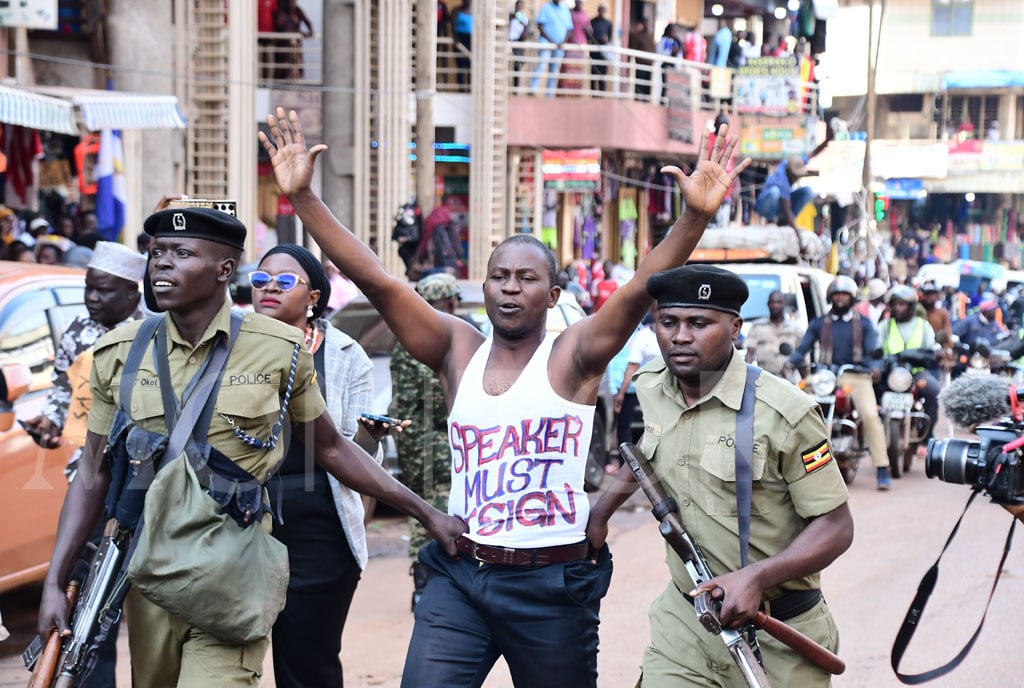Minister warns against copycat protests, calls for peaceful engagement

Policemen arrest a man as Ugandans began a March to Parliament anti-graft protest in Kampala on July 23, 2024. PHOTO/ABUBAKER LUBOWA
What you need to know:
- He emphasised that the circumstances that led to protests in Kenya, where youth recently took to the streets, are different from those in Uganda.
State Minister for National Guidance, Mr Godfrey Kabbyanga Baluku, has urged Ugandans protesting against corruption to adopt more amicable approaches, rather than resorting to open demonstrations.
He emphasised that the circumstances that led to protests in Kenya, where youth recently took to the streets, are different from those in Uganda.
"It's important for Ugandans to note that most of these political issues should not be a case of copy and paste. Just because Kenya demonstrated and went to parliament, doesn't mean you should also demonstrate and go to parliament," Mr Kabbyanga said during a media address at his office in Kampala on Tuesday.
Instead, he encouraged disgruntled citizens to engage in dialogue with the government to find a uniting solution. However, he acknowledged that demonstrations could be a viable option if used to achieve a common goal for a universally underlying reason.
When questioned about the arrest of peaceful protesters in Kampala, Mr Kabbyanga suggested that security operatives may have sensed external or internal issues that could have compromised the demonstration.

State Minister for National Guidance, Mr Godfrey Kabbyanga Baluku. Photo | File
"They thought probably some people can take advantage of that demonstration to also settle their own scores," he said.
The protests, which began on March 23, were sparked by concerns over corruption, particularly among government officials and legislators.
Demonstrators demanded the resignation of Speaker of Parliament Anita Among, reduction of MPs' salaries, and the auditing and publication of MPs' lifestyles.
The protests, which began on March 23, were sparked by concerns over corruption, particularly among government officials and legislators. Demonstrators demanded the resignation of Speaker of Parliament Anita Among, reduction of MPs' salaries, and the auditing and publication of MPs' lifestyles.
Despite the protests gaining traction on social media, the plenary sitting of Parliament, chaired by Deputy Speaker Thomas Tayebwa, did not debate the issues.
Opposition legislators, led by Leader of Opposition Joel Ssenyonyi, called for a debate, but it was deferred to a yet-to-be-named date.




